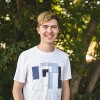BEMIDJI — Bob Lowth Ford General Manager Todd Moudry had long been in good health, so when he was diagnosed with an ascending aortic aneurysm in 2018, he could hardly believe it was true.
The discovery traces back to 2017 when a member of Bob Lowth Ford’s sales staff informed Moudry of a heart drive that Sanford Health was hosting. With a $35 price tag, a cardiovascular screening checks for several risk factors for cardiovascular disease using a myriad of ultrasounds and tests.
ADVERTISEMENT
“(The sales staff) said, ‘You should go,’” Moudry recalled, “and I said we should all go, so I rallied the troops and I called to make the appointment.”
Despite the attempt, open slots were no longer available for the heart drive that year. However, the following year would prove different.
“Sanford saved my name and number and they called me saying they were doing (the heart drive) again (in 2018),” Moudry said. “I was about to go on an elk hunting trip, so I thought, ‘Why not get my heart checked out?’”
Moudry’s initial screening showed he had less than a 4% chance of attaining heart disease, his blood pressure was within range and his vitals were normal.
New to the screening process that year was a CT scan for an additional $50, which Moudry took advantage of. The scan checked for calcification of his arteries, after which Sanford staff informed Moudry that his CT results would be mailed to him — instead of staff calling Moudry directly.
The very next morning, Moudry received a call.
“It was eight o’clock in the morning, I’m on the show floor (at Bob Lowth) and my phone rings. They say, ‘Todd, this is Sanford,’” Moudry said. “We have your test results. You have a thoracic ascending aortic aneurysm and you need to get back in here, like today.”
ADVERTISEMENT
Aortic aneurysm
An ascending aortic aneurysm is an enlargement of the major blood vessel that exits the heart, delivering blood flow to the entire body.
“When we see an enlargement of a certain size, it poses a risk to someone's life out of concern for a possible dissection or rupture, which can be life-threatening and/or life-ending within seconds to minutes,” said James Dewar, chair of Sanford Bemidji’s cardiology department.
Dewar explained that the size of the aneurysm can predict the potential risk of mortality. With particular attention on aneurysms that have grown to at least five centimeters, follow-up tests showed that Moudry’s measured at 5.9 centimeters — roughly the width of a pop can.
“Just sitting in my chest that I never felt and never knew was there,” Moudry added. “It can burst at any time and you’re dead within seconds.”
Moudry underwent surgery at Mayo Clinic in Eau Claire, Wisconsin, after which the recovery process began. Dewar noted a variety of recovery timelines depending on the patient.
“Some people bounce back quickly — maybe three, four days,” Dewar said. “Some people have a longer progression going on for weeks. Most people who have had open heart surgery will tell you that it’s typically at the six-month mark when you’re really starting to feel like you’ve got the wind back in your sails.”
Moudry’s work ethic led him back to Bob Lowth nine days after his surgery — albeit in a limited capacity.
ADVERTISEMENT
“I don’t think people fully realize what all happens in open heart surgery. They cut you in half. That’s just plain and simple,” Moudry said. “They collapse your lungs, move them out of the way. So there’s a lot to recover from. In my case, I was lucky. I walked into work after surgery and worked for a couple hours behind a desk, but it took quite some time to actually feel normal again.”
Underscoring his love for his profession, a moment of serendipity occurred during his one-month check-up.
“I ended up selling my surgeon at Mayo a brand new Explorer,” Moudry said lightheartedly.
Bouncing back
Moudry noted that the rest of his recovery went smoothly besides the pain from the first post-surgery sneeze. He has grown accustomed to his prosthetic heart valve, adding that he was born with a bicuspid heart valve instead of a tricuspid heart valve that led to increased pressure in his heart.
“My heart valve has a loud tick. Some people can hear it,” Moudry added. “A couple of my kids can hear it across the room and it sounds like a really loud watch. I can’t hear it because my body’s become used to it.”
Given Moudry’s story, Dewar emphasized the importance of heart and vascular screenings for everyone, particularly for those who smoke, have family history of cardiac events at an early age, have diabetes or high cholesterol.
“One could make an argument that everybody should be gifting these to each other as Christmas presents or birthday presents,” Dewar said, “to really try to protect what matters most.”
ADVERTISEMENT
Dewar also noted certain preventative measures that can drastically reduce someone’s chance of developing heart or vascular conditions.
“There’s an old saying that the best medicine lies on the end of a fork,” Dewar said. “An ounce of prevention is worth a pound of cure.”
While he couldn’t make his elk hunting trip in 2018, Moudry quickly bounced back to what he enjoys most due to the support he received from all those around him during his recovery.
“I believe there was a divine intervention that I didn’t get to go (to the heart drive) that first year. I would have never had the CT scan because Sanford wasn’t offering it (in 2017) and they would have never held my name and called me,” Moudry left off. “There’s no question God’s hand was in it, and He used Sanford to reveal it to me. That’s an important part of my story.”











